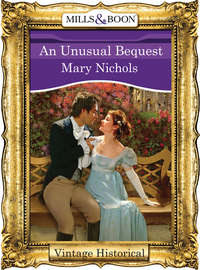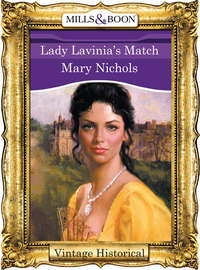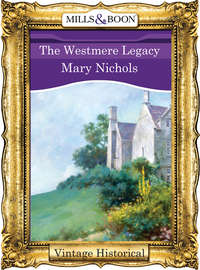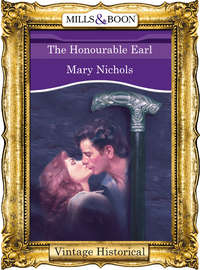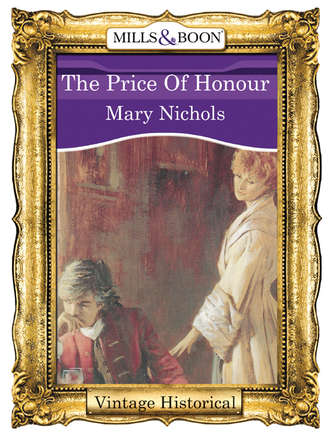
Полная версия
The Price Of Honour
She pulled on the robe and went downstairs determined to put the man from her mind; there were more important things to think of. First, she would clean the clothes she had stolen; she would have liked to say ‘borrowed’, but as she could not see how she could return them, nor pay for them, ‘stolen’ was the only appropriate word. Then she would leave the kitchen and the bedroom tidy; that at least she owed the owner of the house for her unwitting hospitality. After that, she would set off again. The coast of Portugal was to the west, so if she walked with the rising sun at her back she ought, sooner or later, to come across the British lines, or the sea. Obstacles in the form of rivers or mountains, or hostile people, she would deal with as she met them. It was simple.
True, she would rather have had an escort, someone to keep her company and help her overcome the difficulties whatever they might be, but she had learned in the past two years to be resilient and self-sufficient, and when there was nothing else for it, what was the good of wishing otherwise? The guerrilleros would not help her and perhaps that was just as well; friend or foe, they were terrifying.
And as for the Englishman, he was too wrapped up in his own problems to concern himself with hers. But she could not stop herself thinking about him, wondering about him. Why was he in the mountains alone? Why had he been cashiered, if, indeed, he had? She shrugged her thoughts from her as she put on a cotton dress she had found in a cupboard; it had a brown background and was decorated with poppy heads in large red splashes of colour, a servant’s dress, she decided. The old boots and the straw hat completed her ensemble. Her preparations complete, she picked up the bundle she had gathered together and left by the door she had entered, carefully shutting it behind her. It was none of her business what he was up to.
She stopped when she saw him riding back up the drive, leading a mule. He was smiling.
‘If you think that bringing that will make me change my mind,’ she said, without bothering to give him good morning, ‘you are mistaken. I will have nothing to do with your hare-brained schemes. You are mad.’
‘But it is the mad ideas which have the best chance of success, don’t you agree?’ he queried amiably. ‘And I thrive on a challenge.’
‘You will not thrive on this one.’
‘With you at my side, I could succeed.’
‘Succeed in doing what?’ she demanded.
He laughed. ‘Do you know, I am not at all sure? I will put my mind to it as we ride.’
‘I will not ride with you.’
‘No? Would you rather the guerrilleros finished off what they started?’
She looked up at him defiantly but the tone of his voice suggested that she had not left the partisans as far behind as she thought. ‘They are not interested in me.’
‘On the contrary, Madame Santerre, they are very interested in you.’
‘How do you know?’
‘I know.’
‘Where are they?’
‘I saw them riding down the mountainside, about twenty of them, armed to the teeth.’
‘They are coming here?’
He shrugged.
‘I do not believe you.’ But even as she spoke she realised he was telling the truth. ‘Why would they send twenty armed men after one woman?’ She paused. ‘Unless they are after you too.’
‘Whichever it is, madame, you and I are destined to spend some time together, so why not accept the inevitable? I will make a bargain with you. When we reach the main road from Ciudad Rodrigo into Portugal, you can go your way and I will go mine.’
‘Is that a promise?’
‘If that is what you want. Come now, we are wasting time. Mount up and let us be on our way; the sooner we start, the sooner you will be rid of me.’
She would have liked to defy him, to refuse to do anything he asked, but the thought of riding instead of walking, and having some protection against the bloodthirsty Spanish partisans, was a powerful persuader. Olivia tied her bundle behind the saddle of the mule and, using the doorstep as a mounting block, hitched up her skirt and threw her leg over the animal’s back, aware as she did so that he was smiling. ‘Do you think I have not ridden astride before?’ she demanded.
‘No, it is evident that you are quite accustomed to it.’ He turned his horse and led the way, not back up the drive to the gates, but along a rough path that led from the side of the house, round an empty stable block and through an olive grove which went steeply downhill towards the distant river. ‘Better than taking the road,’ he said over his shoulder.
She did not answer but concentrated on watching where the mule was going, thankful for its sure-footedness as it picked its way over loose stones and the roots of ancient olives which clung to any tiny crevice where there was soil. When the path broadened out, he reined in for her to come abreast of him.
‘Tell me about Ciudad Rodrigo,’ he commanded. ‘All you know.’
‘I know very little. We had only been there one day, just long enough to find lodgings.’
‘Describe the place, the streets, the buildings, the defences, anything you can think of. How are the inhabitants behaving towards the occupying forces? Do the French have trouble with them? Is there any resistance?’
‘I would not think so. The town surrendered, after all. The resistance is in the hills.’
‘To be sure.’
‘And if I knew anything, would I be so foolish as to tell you, sir? I do not know you or why you are here, do I? You may be a spy. In fact, I think that is just what you are.’
‘Touché, madame.’ He smiled as if at some secret joke. ‘Did you learn anything of the intentions of the guerrilleros while you were with them?’
‘I do not trust them either; they are a bloodthirsty lot.’
‘So they are, but not without reason. If someone had invaded England and pillaged your home town, raped the women and killed the men for nothing except keeping back food to feed their children, you would be bloodthirsty.’ He turned to look at her. He seemed far less formidable than he had in the poor light of the evening before and yet, behind the hazel eyes, there was an alertness which was not immediately evident from his languid pose. ‘The Spanish are hopeless when it comes to fighting in the disciplined way of the British army, but in small bands, in the hills where they can remain hidden until the time comes to strike, there are none better. The Peer knows that and he encourages them.’
‘I think they are barbaric. They did not have to kill Philippe; he could not have harmed them.’
‘He could have given away their position.’
‘We were blindfolded when we were taken to their camp.’
‘And yet you found your way out.’
‘That was simple good luck.’
‘They would not view it so. You could lead a French patrol back there.’
She looked startled. ‘Why should I do that? I told them I was English.’
‘And did they believe you? Did they even understand you?’
‘Their leader did. He looked as uncouth as the rest of his band, but he spoke excellent French and very good English. He was — is — an educated man.’
‘Don Miguel Santandos,’ he murmured, almost to himself.
‘You know him?’
‘I know of him. He is one of the fiercest and bravest fighters in all Spain, but he is also ruthless. He will let nothing stand in his way; he would certainly not think twice about killing a woman. If he thinks you are likely to betray him, he will come after you; nothing is more certain.’
She laughed. ‘If you are saying that to persuade me to go with you, you are wasting your time. I do not want to return to Ciudad Rodrigo, I intend to go home to England, and the sooner the better.’
‘You may do as you please,’ he said laconically. ‘But before you can do that we have to cross the river and find the road.’
She rode silently for a moment or two, but curiosity drove her to speak again. ‘What will you do in Ciudad Rodrigo, always supposing you manage to enter the town at all? You will have to remain silent, you know, so how will you make yourself understood?’
‘A man who has been hanged and survived is still able to write, and my French is good enough for that.’
‘You will never convince anyone you have been hanged. There would be a very nasty mark on your neck if you had.’
‘I shall have to wear a bandage.’
‘They are not fools, you know.’
‘Neither am I.’
She could not believe he really meant to do it. It was a silly game he was playing with her, though what his reasons were she could not even guess. Unless he was testing her loyalty? Why? She had told him the truth, if not the whole truth, so what more could he possibly want? ‘You have not even told me your name,’ she said. ‘What shall I call you?’
‘Anything that takes your fancy, madame.’
‘Have you something to hide?’
He laughed harshly. ‘There is little that can be hidden behind a coat with no buttons. I am as you see me.’
‘Cashiered,’ she said. ‘Dishonourably discharged.’
‘My honour is my own affair,’ he said stiffly.
‘So it is; I have no interest in it. After all, we part at the crossroads and I do not expect to see you again. You will undoubtedly be shot by the French for spying — or by the English.’
‘Better that than…’ He stopped suddenly and sat forward in his saddle, holding his hand up to stop her. ‘Be silent!’
She reined in and craned her neck to look past him. The village lay below them, nestling on the far side of a swiftly moving river which had cut a deep gorge through the mountain rock. There was a lone villa standing at the end of an ancient bridge. She watched, fascinated, as a group of men scrambled up from the rocks among the pillars of the bridge and ran into the villa. A moment later a huge explosion filled the air, flinging debris high into the sky. When the dust had settled, there was no longer a bridge.
‘If we had been two minutes earlier, we would have been on it.’ He chuckled. ‘Thank heaven for an argumentative woman.’
‘And if we had used the road we might have been even earlier and on the other side by now,’ she retorted. ‘Now, what do we do? Could we find a boat?’
He laughed. ‘Do you think that after taking the trouble to blow up the bridge the guerrilleros are going to be so careless as to leave boats about? Besides, the banks are too steep for anyone but a mountain goat to get down to the water.’
‘Why did they do it? It is hardly an important bridge. It looks to me as though it is only used by the villagers to reach their olive groves.’
‘They want to stop someone from using it; that much is plain. Perhaps they are expecting company.’ He turned his horse to face her. ‘Or perhaps they want to keep a certain person on this side of it.’
‘You?’ she queried. Then, startled, ‘Me?’
‘Who’s to say what is in the mind of Don Santandos? But I think we would be wise to move on.’
‘Where?’
‘North, towards the head of the river, there might be another bridge or, if not, a place to cross.’
‘Why not south?’
‘You may go south if you wish,’ he said laconically. ‘But I go north and then east.’
‘You would not leave me here alone?’
‘I thought that was what you most desired.’
‘That was before…’
‘Before?’ He laughed. ‘I am the lesser of two evils, is that it?’
‘I am not even sure of that,’ she retorted. ‘Danger comes in many guises. Just because you look a little more civilised than that Spaniard does not mean you are less dangerous. In fact, I think you are possibly the more deadly of the two. Don Santandos said he would keep me safe until he had checked my story, while you…’
‘And would he have been able to check your story? Are you sure you told him the whole truth?’
She did not answer and he turned his horse towards the mountain peaks and set off back along the path through the olive groves, leaving her fuming in her saddle. She looked behind her at the ruins of the bridge. The partisans were streaming out of the villa and up the hill towards them. She dug her heels into the mule’s flanks and set off after the Englishman.
‘I shall call you Mr Leopard,’ she said, then laughed. ‘Until such time as we meet someone who can effect a proper introduction.’
‘Why Leopard?’
‘Isn’t that what Napoleon calls Viscount Wellington — a hideous leopard?’
‘The comparison flatters me, ma’am. Did you know the leopard cannot sheath its claws?’
‘No, I didn’t.’
‘I have none to sheath.’
‘That I beg leave to doubt.’ She paused. ‘Are we going back to the villa?’
‘No. We will turn off in the olive grove and find the path that follows the course of the river.’
‘If there is one.’
They rode on in silence until he found the track he wanted and turned his horse northwards. Olivia followed because there was nothing else she could do. The ground became rougher and the hill steeper. She glanced behind her every now and again, but there was no sign of the guerrilleros and she began to think he had been wrong or trying to frighten her. ‘Do you really think the bridge was blown to trap me?’ she asked at last. ‘Surely they would not inconvenience a whole village just to punish one woman?’
‘It depends what they think you know.’
‘I know nothing. If we were to wait and face them, could we not convince them of it?’
‘I doubt it.’
‘I begin to think it is not me but you they want. You are their enemy.’
‘You may think what you please.’
‘Are you going to ride all day without stopping?’
‘If I have to.’
‘I have some food in my pack.’
‘Good.’
‘You are not very talkative, are you?’
‘No need to be; you do enough talking for both of us.’
‘You wish me to be silent?’
‘It might help.’
‘Help you to think?’
‘And help me to hear. Good heavens, woman, you would be useless on patrol.’
‘I am not a soldier.’
‘No, thank heaven. Listen!’ He reined in and stood in the stirrups. ‘The river is over there.’ He started off again towards the sound of running water.
When they arrived on the top of the rise they had been climbing they could see the river, hundreds of feet below them, cut into a gorge whose cliffs were unscaleable. Olivia’s heart sank. ‘I said we should go south,’ she said. ‘Are you going to turn back?’
‘Certainly not! Come on.’
She looked up at the distant mountain; the source of the river was almost certainly high up in those peaks. ‘We can’t go up there.’
‘We may not need to.’
She was reluctant to start moving again, but he did not wait for her and she clicked her tongue at the mule and set off in his wake.
The sun climbed to its zenith, but they were so high in the wind-swept mountains that they could not feel its warmth. Olivia stopped to fetch Philippe’s jacket out of her pack and put it on. She was not sure, but she thought he had slowed his pace a little to wait for her. It pleased her out of all proportion and she decided to test it by lingering longer than she needed, just to see if he would turn back. But he did not even turn his head; he simply walked his horse slowly until she caught up with him again.
‘Do not do that again,’ he said. ‘Not without telling me. I could have gone on and left you behind. Anything could have happened to you.’
‘I was cold. And I am hungry and thirsty. When are we going to stop?’
‘When we reach that outcrop.’ He lifted his hand to point at a group of boulders poised on the skyline as if some giant hand had taken great pains to set them there, finely balanced and yet immovable. ‘It will afford some shelter from the wind and a fine view as well. You shall have your picnic there.’
His tone annoyed her; it was as if he thought she was a frivolous, empty-headed female who behaved as if she were at home in England. Would that she were! ‘Even I know that an army marches on its stomach,’ she retorted. ‘We will go the better for having rested a few minutes. And besides, what is the hurry? I cannot see us being on the other side of the river before nightfall however hard we press on.’
‘You may be right.’
‘I begin to wonder where you are leading me; we are moving away from the river now.’
‘If you had not been so busy refining upon this and that, you would have noticed the river was taking a wide curve; we are simply cutting across the bend. When we reach the top of the hill, we shall see it again.’
You seem to know your way very well. Have you, perhaps, been here before?’
‘I am a soldier, trained to be observant.’
‘So you said before.’
‘Did you learn nothing from either of your husbands?’
‘I learned a great deal, but as one was no more than a private and the other a mere lieutenant tactics did not come into it. Poor Tom was drilled to obey without question, and Philippe…’
‘Philippe was what?’
‘A dreamer, a romantic. He came from a noble family and he never took war seriously. Even when he was wounded he laughed and said it was just bad luck.’
‘Were you never exhausted and hungry?’
‘Philippe always had money for food and a good bed, but many of the ordinary troops suffer badly; you must know the French commissary always relies on what the country can offer…’
‘Offer! That is hardly accurate. If I know the Spaniards, they offer nothing.’
She smiled. ‘You are right, which is why supplying the army is such a problem to the French command.’
‘It is the same in any army, but forethought and planning and money to pay make the difference. Did Philippe not feel guilty, using his wealth to fare better than his men?’
‘I do not think so. Sometimes he bought food for his troop as well.’
‘Very magnanimous of him. He sounds exceedingly pompous to me.’
‘He was nothing of the sort. How you think you can impersonate him when you have no idea what he was like I do not know.’
‘But you said no one else in Ciudad Rodrigo knew him either, so it hardly matters.’
‘You never know, someone might come along, an old friend, a fellow officer, someone who fought with him at Talavera…’
‘That is a chance I will have to take.’
‘I still say you are mad. Even madder to attempt it without me.’
‘You will come, then?’
‘No,’ she said sharply.
His complacent smile annoyed her, but she was angrier with herself for even suggesting she ought to go with him. That was not her intention at all. She fell silent, concentrating on the group of rocks which were their goal and which seemed as far away as ever.
It was the middle of the afternoon when they reached them. He dismounted and left his horse to graze on the sparse vegetation and turned to help her down. She felt herself being lifted clean out of the saddle as if she had no more weight than a feather. And yet she was over average height and well built, if over-thin. As he set her down, keeping his hands about her waist for a breathless moment longer than he needed to, she realised how tall he was; that, unlike many men, he towered over her. Slowly she looked up into his face, wondering whether to speak or remain silent, to scold him for manhandling her or to thank him for his courtesy, but what she saw there silenced her. Behind the hazel eyes was a look of anguish, of a pain too deep for speech. Someone, or something, had hurt him very badly.
‘Now, where is this feast?’ he said lightly, turning towards the pack on the back of the mule’s saddle.
She took out cold hare and a bottle of wine and from the depths of his saddle-bag he found bread.
‘You did not have that last night,’ she said, pointing at it.
‘I did not have a mule either.’
‘Where did you get them?’
He laughed and the hurt look left his eyes and was replaced by a twinkle of humour. ‘Better not ask, madame.’
‘My name is Olivia,’ she said. ‘And I do not like the French form of address.’
‘Not even when it is correct? But as I have taken on the mantle of your dead husband, then it would be better to use your given name, I agree.’
‘You surely do not intend to go through with that wild scheme of yours?’
‘More than ever.’
‘What have you to gain?’
‘A new set of claws.’
‘Is that all?’
‘All? To me it is everything.’
‘Tell me about it.’
‘Not now. It is neither the time nor the place; we have to finish our meal and go on if we intend to find a river crossing by dark.’
She was wise enough to desist from prying and they ate in silence. When food and wine were both consumed, they set off again. ‘That was dinner,’ she said with a laugh which sounded hollow. ‘What shall we have for supper?’
He smiled. ‘“Sufficient unto the day…”’
‘Oh, very droll. If we had turned south, we would have found some habitation, somewhere where we could buy food and drink and a bed for the night. Up here in the mountains…’
‘The mountains are teeming with life — hares, goats, boars, maybe a mountain lion or two.’
She laughed. ‘Leopards with claws.’
‘I sincerely hope not.’ His answer was clipped and stopped her jesting. She did not know how to take him; he was cheerful, almost boyish one minute and morose and short-tempered the next, and neither her teasing nor her anger seemed to change that. She should remain silent, allow him to brood on his own if he wanted to, but it was not in her nature to let things lie. He needed taking out of himself and then he might be prepared to confide in her. If he did that, and he had some very compelling reason for wanting to go to Ciudad Rodrigo, she might consider helping him. She brought herself up short. Was she weakening? No, she told herself, she would leave him at the first opportunity. Would he come after her? Riding a mule, she had no chance of outpacing him.
‘What’s his name?’ she asked, looking at the beautiful black stallion.
‘Thor.’
‘The god of thunder,’ she said. ‘Is he thunderous?’
‘He is more than you can handle.’
‘Indeed?’
The mischievous note in her voice made him turn to look at her; her green eyes were laughing at him in a way which made his pulses quicken. ‘Indeed,’ he repeated firmly.
It was dusk when the track turned away from the gorse-clad slopes and entered a pine wood. Once in the shelter of the trees, he stopped and dismounted. ‘Madame desires a good hotel,’ he said, eyes twinkling. ‘This is the very best the region has to offer. The beds are soft and cleaner than most.’ He pointed to heaps of brown pine needles. ‘Supper will arrive in due course. Make yourself comfortable.’
‘Where are you going?’
‘To find our supper.’
‘Another hare.’
‘I had my thoughts on something a little tastier. I caught a glimpse of a herd of goats.’
‘But they belong to the people. And in any case, what would we do with a whole goat?’
‘Not a goat, a kid.’
‘No!’ Her voice was sharp. ‘That would be cruel and unnecessary.’
‘You may go hungry, if you prefer that,’ he said. ‘But I intend to eat.’ He picked up his rifle, pouch and ammunition and set off through the trees, leaving her to make herself comfortable on the pine needles. She had eaten kid many times before, but then she had not seen it newly slaughtered, nor had a hand in the skinning of it; that had been done by someone in Philippe’s troop. Half the time she had not known what she was eating anyway; hunger had made her less than fastidious.
She smiled to herself; she was deliberately trying the patience of the Englishman — the leopard without claws — just to see how far she could go before he lost his composure. It was a dangerous game to play. Supposing he left her and supposing the guerrilleros were really after her and not him? Supposing she lost her way? Supposing she was attacked by wolves or wild boars? She ought to be thankful for his protection. She sat down and leant her back against one of the trees. She ought to start a fire or, at least, gather the firewood; he would return soon and she had done nothing but dream.



